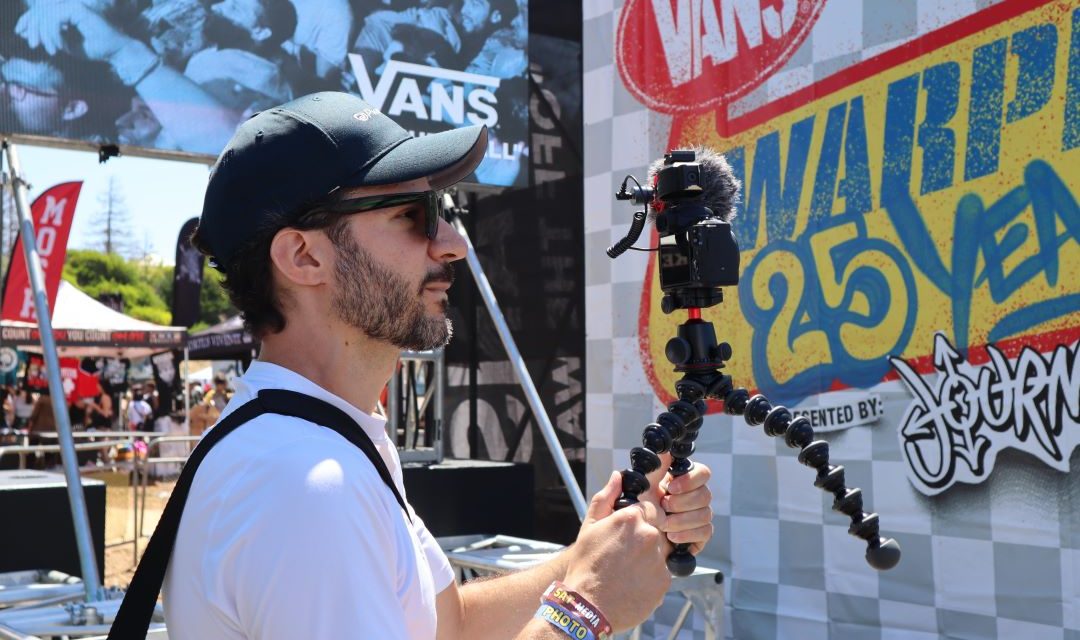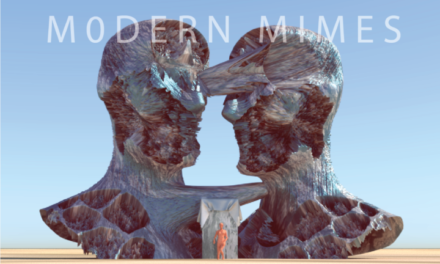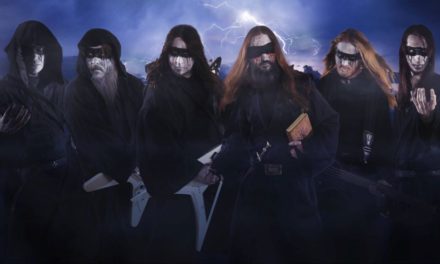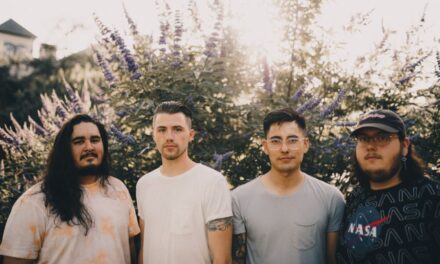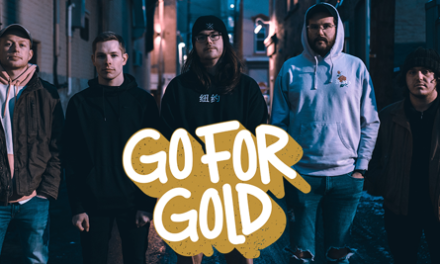LA-based director Kyle Kilday is in the process of creating his documentary ‘The Last Scene’ that will examine the roots of various underground DIY music scenes of the late 1990s through the early 2000s. He has launched a Kickstarter campaign and has a goal to reach $10,000 by October 15th. The film will feature interviews with members of Silverstein, Hawthorne Heights, Thursday, Piebald, Saves The Day, and more!
Support the Kickstarter here: https://www.kickstarter.com/projects/895586618/the-last-scene
All questions were answered by Kyle Kilday.
Q: Your documentary ‘The Last Scene’ will be a comprehensive chronicle of the underground DIY scene of the late 1990s through the early 2000s that holds such a special place in the hearts of many. Can you tell me a little bit more about what it will examine?
A: When it comes down to it, I want to tell the story of a group of artists/bands who came up together at a specific time. A lot of the bands came up through the hardcore scene but carried a ton of different influences with them that came through in their music. That’s what made it unique and special I think, and why it felt like something new. So more than have a debate about genre or “what real emo is” or anything like that, I want to talk about process. The process of getting interested in underground music, finding friends to play with, starting a band together, writing songs, and then finding someplace to play. It was this sort of last vestige of “analog” youth culture, so to speak. And of course this all happened on the cusp of a period of disruption for the music business and the start of the decline of rock music’s popularity with young people overall.
Q: What was your inspiration for wanting to create this film?
A: As someone who has always had a deep connection to playing and listening to music, when I discovered this scene I felt like I found exactly what music was supposed to be – particularly the live music experience. I think it’s also important to me to tell a story about kids who had the agency to go ahead and just create something like this for themselves. From a professional standpoint, I’ve been working in the film/TV industry for 15 years on a variety of projects that I feel no connection to. I used to not really care about that sort of thing, but the older I get the stronger I feel the pull to use my skills and experience to tell stories that I want to tell. The time just felt right to do it now.
Q: You have created an “all or nothing” Kickstarter campaign that has a goal of reaching $10,000 by October 15th. Will you explain what that money will help you achieve and what the ultimate goal is for you when it comes to this documentary?
A: Basically, I wanted to set a realistic initial goal that would be enough to cover the cost of some boring stuff like technical infrastructure and media storage, and also to allow me to travel to get the interviews and other stuff to tell a complete story. I figure that if I at least hit this initial goal I can tell part one, which is the roots of this scene up until the cusp of its mainstream breakout. Ultimately, I want to cover the entire movement – beginning to “end” – over that roughly 10-year period of formation and mainstream success I laid out earlier. It’s hard to know how much money it will take to do it exactly how I want, given variables like music and clip licensing (like if I want to use a clip of Yellowcard on TRL or New Found Glory on Conan or whatever), so I’m hoping to raise as much as I can and keep this an independent production that the fans and artists want to see.
Q: For supporting the Kickstarter campaign and pledging certain amounts of money, there are corresponding rewards packages including one that even allows the backer’s name to be in the film credits. Can you tell me more about the rewards and how you decided on them?
A: To be honest, in this regard I’m following the lead of a company I’m working with called Craft Services. They specialize in helping people run Kickstarters for music-related projects. It’s co-run by Jim Logrando and Steve Soboslai (who is the lead singer of the band Punchline). So added bonus they have a personal investment in the subject matter. We have some cool stuff though that we’re gonna design like t-shirts and a poster. And we gotta have a hoodie. The hoodie was a scene symbol. I’m going to record some podcast-diary type stuff like behind-the-scenes shooting the interviews and some funny/cool anecdotes. Hopefully people will care what I have to say, haha. I know how to edit, so I’m gonna try to make them as interesting as possible by including some audio other than just me talking.
Q: What bands from that 1997-2007 era meant the most to you? How did you decide who to interview thus far, and is there anyone you are currently dreaming of interviewing for this project?
A: Well, the dream part is easy…basically the 4 Horsemen of Emo, if you will: Jimmy Eat World, Fall Out Boy, Dashboard Confessional and My Chemical Romance. It would be a challenge to try to tell the whole story of the movement and not include them. I also really want to interview Tom Delonge really bad. We’ll see if that’s even in the realm of possibility. As far as who I’ve interviewed thus far, to be honest it has had a lot to do with who either lives in LA or happened to be coming through on tour. I just lucked out that 2019 has brought some of the most important figures in the movement through my neck of the woods. I knew I had to get Chris Conley from Saves the Day, Vinnie Caruana from The Movielife, and Geoff Rickly of Thursday. They’re three pillars. Some people may look at the list so far and not be able to make sense of it if you don’t think of it like I am – that it’s covering the evolution of the scene over this time period and I’m not being genre or sub-genre specific. I’m fully aware of my East Coast bias thus far, haha. I’m working on that. I did talk to John Tran from Home Grown, which is a band I love. I’ve got more geographic diversity in the works.
Q: Has there been any interview that you have done that has stuck out to you? If so, why?
A: Probably Geoff Rickly of Thursday. It was the first interview I did solo and we had to do it in the back of a tour bus with me crouched down, sitting on a suitcase in front of him. It felt borderline unprofessional, haha, but he gave me a great interview and it came out looking good. I was on a time limit setting up so I was paranoid audio wasn’t recording and I was going to end up with nothing… Filmmaking!
Q: Is there something special about making a documentary backed by the people who participated in the underground scene that it is all about?
A: I think it’s the optimal way to do it, given how the whole thing was created in the first place. It’s got a full-circle quality to it.
Q: What do you miss about the way the scene used to be during that decade?
A: Sorry, this is kind of an eye-roll answer, but the first thing is the absence of smartphones. You just notice fewer details and aren’t really absorbing the performance. I also miss the lack of professionalism in terms of the production value, if you will. One of the things I loved the most was that the production came across as totally haphazard and amateurish, but then these practiced, tight bands with great original songs would come out and melt your face off. Back in March The Movielife and Travis Shettel of Piebald came through on tour and they played at The Roxy, which is a relatively cool and old school venue and that was a great show. The crowd was so into it and it was a bunch of their friends. It had the feel of one of those old shows. I also like going to see Streetlight Manifesto when they come through. They have a dedicated following that’s totally engaged in the performance with them and it’s not a “too-cool-for-school” L.A. crowd.
Q: The days of Warped Tour and discovering bands in the parking lots before the show may be over, but how do you think it contributed to the DIY underground scene?
A: Warped Tour became the symbol of this scene and is what really brought it to a mainstream audience. I think the days of like Warner Brothers Records signing a band from that scene are over. But there are a lot of cool independent labels out there releasing cool records like Know Hope, Hopeless Records (a theme?), Pure Noise. The internet and other factors have changed how kids discover music and kind of diminished the importance of actually physically being somewhere all together. Also I get the sense there aren’t a ton of random pop-up shows at VFW Halls anymore. So the opportunity to create a new scene in the same way is diminished. Maybe I’m wrong? I hope so. But if you’re in a Facebook group or some other sort of online community where you can share music and upload videos of yourself playing songs, the need to go out and meet people where you live and do that isn’t there.
Q: Assuming this documentary gets made (and we genuinely hope it does), what do you hope people gain from watching it?
A: For the people who were there at the time, I’m hoping to make something definitive about this special moment in time. I don’t want it to be pure nostalgia. For everyone who was a teenager/young adult but don’t really know about all this, I want them to inform them about what was going on in the basement of the house down the street or the American Legion across town. I think because of Hot Topic and the way “Emo” turned into a uniform by the middle of the 00’s, that’s what a lot of those people remember. I want these artists, who made phenomenal music that meant the world to a generation of their peers, to get the recognition they deserve.

